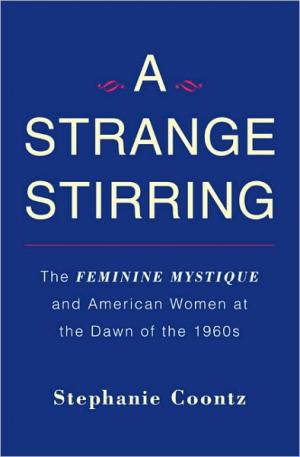A Strange Stirring: The Feminine Mystique and American Women at the Dawn of the 1960s

Stephanie Coontz has taken on a project of mythical proportions with her latest work, A Strange Stirring, an examination of the impact Betty Friedan’s The Feminine Mystique had on American society and culture in the 1960s. A Strange Stirring looks at both the book’s message to women during this stifling time and investigates the life of Friedan herself, giving the author credit for her truly remarkable work while laying bare some of the controversies surrounding the groundbreaking work.
Coontz has put together a comprehensive picture of what life was like for women in America during the 1950s and '60s. Aside from reading Friedan's book, her research includes books and articles from the same time period to investigate the sociology of American society. She also interviewed women with regard to their experience of Friedan’s book. This approach fills in the details with political, legal, social, cultural, and emotional issues to create an intricate view. Anyone born in the 1970s or later will find themselves immersed in the Mad Men-like world of middle class, suburban housewives.
In an era when women’s lives were predetermined, Friedan’s voice was one of hope and redemption. Women who had been marginalized, demonized, and used to prop up their husbands and children (but only if they did it ‘right') discovered they were not alone in their frustration and despair. Coontz gives credit where it is due, while also making sure to remind the reader that Friedan was not singlehandedly responsible for the birth of the women’s liberation movement.
A Strange Stirring is thoughtful and diligent in its research. Educational and incredibly illustrative of this time period in American history, I can’t imagine a better study of this pivotal work, and truly appreciate its honesty, clarity, and well-rounded approach.
We owe so much to those who went before us. What a road they paved.
Friedan gave voice to what many believed in their hearts and dared speak only in whispers to their most trusted confidants. While there were many within the movement critical of her work, particularly women of color, it was a healthy criticism that helped us all work toward a more fair, just world for everyone, not just privileged white women. You've piqued my interest in this look at Friedan and the time from a historical perspective.